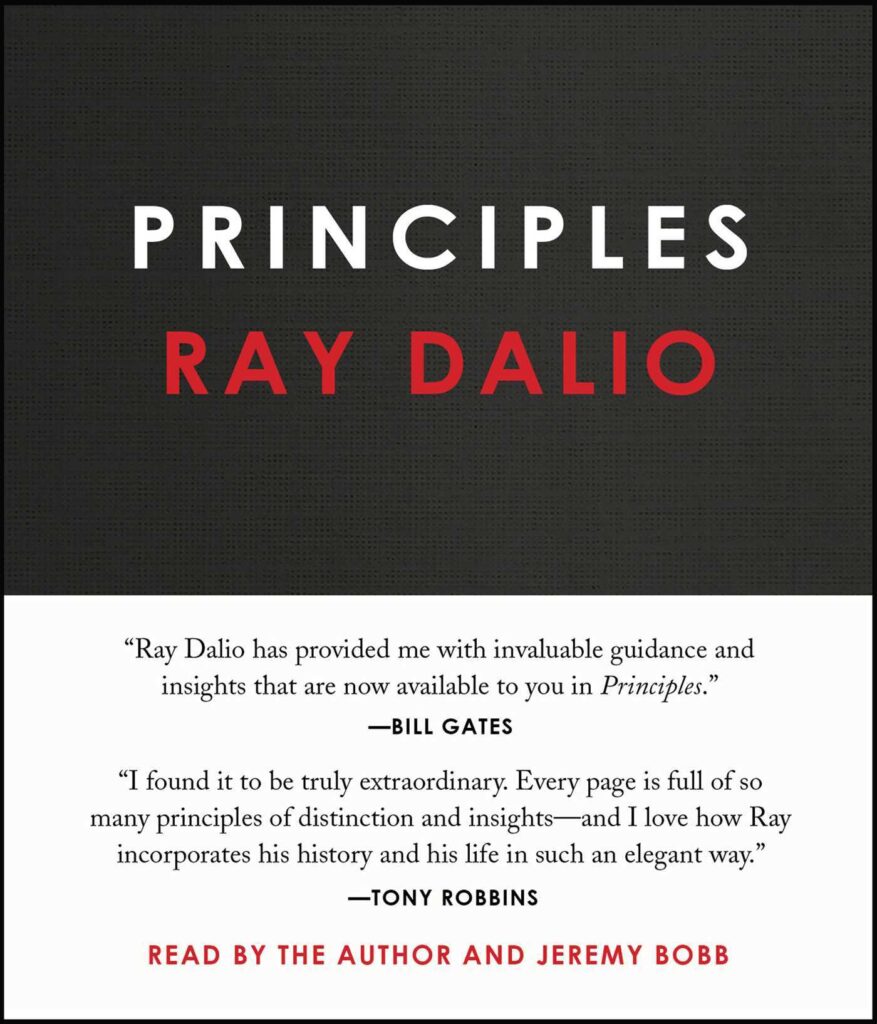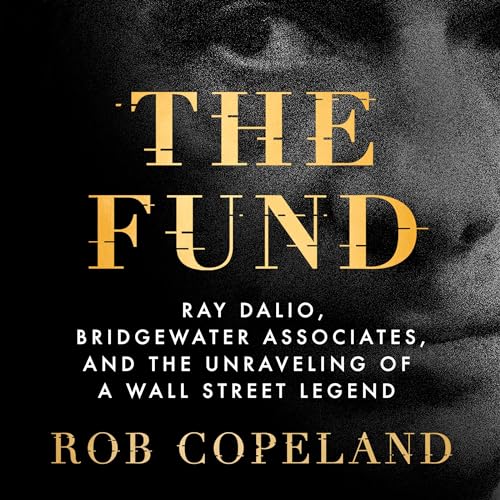The first time I read Ray Dalio’s Principle book was some 6 years ago, at that time it didn’t even exist in the form of a proper book, just a PDF. I was immediately impressed with the content of the book, which claimed to reveal the secret of success in every aspect of life, including business, family, human relationship and everything. And who wouldn’t be? In a life where nothing is guaranteed and everything seems to be rigged in favor of those who are already successful, meritocracy means very little most of the time. And here comes Ray Dalio, the manager of the biggest hedge fund of the world, Bridge Water who sells you “The Principles” that he applied in every aspect of his life, which he claims is the very reason of his success.

And, and, the book is not a boring theoretical treatise but a down to earth manual, so you can also do it!
Isn’t that enticing? So I read it, and then I read it a couple of times over the next few years. I can say that I actually agree with most of them. Here are just a few principles that resonated deeply within me.
- Embrace reality and not fantasy. Be radically transparent, ask “what is true” instead of “what you wish is true”.
- You should look at the second order and third order effects of your action, and not just the first order
- Decide on your values, set goals-> diagnose problems-> design plans-> review-> rinse and repeat until you reach your goals
- Build a process– a machine– to get what you want. Don’t tolerate problems, and fine tune your machine all the time so that it gives you repeatable and desired results.
- Believability is the key; seniority, status, title and clothes don’t matter. Not all opinions are equal, and those with a good history record of making correct predictions will have greater believability
- Stress test your opinion, make it fail so that you can form a better, more robust one. And repeat.
How I wish that I and everyone else will work and think in a similar manner!
Imagine a world whereby everyone can look at the objective facts, uncolored by emotions, engage their prefrontal cortex ( and not their amygdala ) to sort out the right from the wrong ( If you can’t imagine then just picture that your wife is doing it when she is arguing with you). How wonderful would it be?
Imagine a world where seniority doesn’t matter, only ideas do and even a junior from an unprivileged background can also rise to the top just by being virtually more correct than others. Wouldn’t my company be in a much better place? And not to mention that I would immediately be promoted to be the president of the company!
Imagine that our political leaders don’t just look 5 years into the horizon when they make their decisions but would instead consider the second and third order effects of their actions many decades later, would we still be taking no action against the Climate Change?
Our world is fraught with bad feedback– the feedback that doesn’t reinforce the correct behavior or promote the true understanding of the world. For example, we often see that a very successful CEO treats his staff in an inhuman way and yet that doesn’t in any way diminishes his success. Instead, his net worth multiplies due to the rise of the stock market! So, a lot of wannabes pretend to be mean as they want to be the next Steve Jobs, and of course, being mean for the sake of being mean doesn’t lead anyone anywhere. Now imagine if we can really test our opinion in a setting akin to a double blind experiment? We would then be able to form a more correct judgment, and modify our opinion and action accordingly. We would be able to carefully design the parameters of the experiment, so that we can get to the full extent of the truth. No more mean boss!
The Principles are the Utopia for rational people, and our world would be much better if it was run by rational people.
The only problem is the implementation.
As much as I adore The Principles, I do realize the difficulties in implementing them. Chief among the difficulties is the wicked environment that I already mentioned. Your correct decisions may not always lead to the optimal results because other uncontrollable factors are influencing the outcome more than what you do or don’t.
Furthermore, you live and work with other people, they are a part of the wicked environment. You are rational, they are not. You are turned on by a solid argument, they are turned off by it. You call them brainless and they call you heartless.
I would have thought that no one– not even Ray Dalio himself– would seriously go and promote it as the One True Way of Living. And then I came across this book “The Fund: Ray Dalio, Bridgewater Associates, and the Unraveling of a Wall Street Legend” which really opened my eyes.

The book is astonishing because it reveals to what extent Ray Dalio had taken his idea– simply too far. It appears that not only Ray was such a fervent believer in his own Principles that he wrote a book to tout it, he even went to such an extent that he would codify the whole thing and applied it in his company and beyond. His idea was that once the Principles are being programmed into an app, no human judgment– not even his– was needed. The app can, based on a set of rules, split out an answer about just everything, every decision you are going to make, and arbitrage between two arguing parties on who’s right and who’s wrong.
To live up to the standards of radical transparency, Ray also ran his hedge fund in such a manner. You don’t badmouth others’ behind their backs; instead, solve everything in direct and frank discussion. The overapplication of this principle led to trials that resemble courtroom battles, with Ray as the lead prosecutor and the judge … and you know how it would turn up when your boss is up against you, to hell with all the meritocracy and radical transparency!
There are many, many more of such misapplications of The Principles, detailed in the book. “The Fund” often reads like a satire, a caricature of a rational machine goes awry. But I am afraid there is more truth in the book than what the application of The Principles can get out of in most situations. What the book clearly illustrates is that despite the best of intentions, and sometimes the best of your rational judgment, harm can be done if there is no love. Humans are not machines. And we don’t strictly operate by rational principles. Our brains are not hardwired to get to the truth– they are hardwired for survival. So imagine if you are in a courtroom and your boss is the lead prosecutor, would you ever stand up to him, despite him preaching the idea of meritocracy all the time? What if you are in an honest discussion, but the other parties are not in the mood to do so, probably because they have something to hide or just because they have had a bad day, do you think it’s going to be fruitful? And what about your child, who is reeling from breaking your most beloved arts and is expecting a solid punishment according to your house rule, at this point of time, which does more good, a warm hug of love or a strict application of your Principles?
Human emotion, ego and all the reactions associated with amygdala are powerful forces, even more powerful than rational thinking. It’s often that our brain is used to justify our emotions rather than the other way round. You may be an exception, but others are not. And in real life, it pays to cut some slacks for yourself and others. It’s important to understand that rational thinking and codification of it may not be the best way to go in every circumstance.
In other words, “The Principles” shouldn’t be a cult; the best way to still use it is as a self help tool, rather than as a prescription to run your family or businesses. In other words, YOU follow The Principles ( whatever they are to you) and you don’t expect other people to follow your example, especially your wife or your children. In that way, you will become a better person. In a business setting, the best way you can do it is not to codify The Principles and run it mechanically, but to find managers and people who buy into this philosophy. Note that you simply can’t train people to think like this because this ability is purely innate; either you have it or you don’t. So your hiring matters a lot more than training.
“The Fund” is an entertaining read. The book contains very scant discussion about how Ray Dalio’s hedge fund operates in the market ( so be prepared to be disappointed if you want to learn the secret to start your own hedge fund), but it does note that the fund’s performance had been going downhill– lackluster compared to other funds in the last ten years or so– since it became famous. Is it just reversal to mean, or the zealous application of The Principles within the company has anything to do with it? Who knows?
Can you design a machine to diagnose this and fix this?





